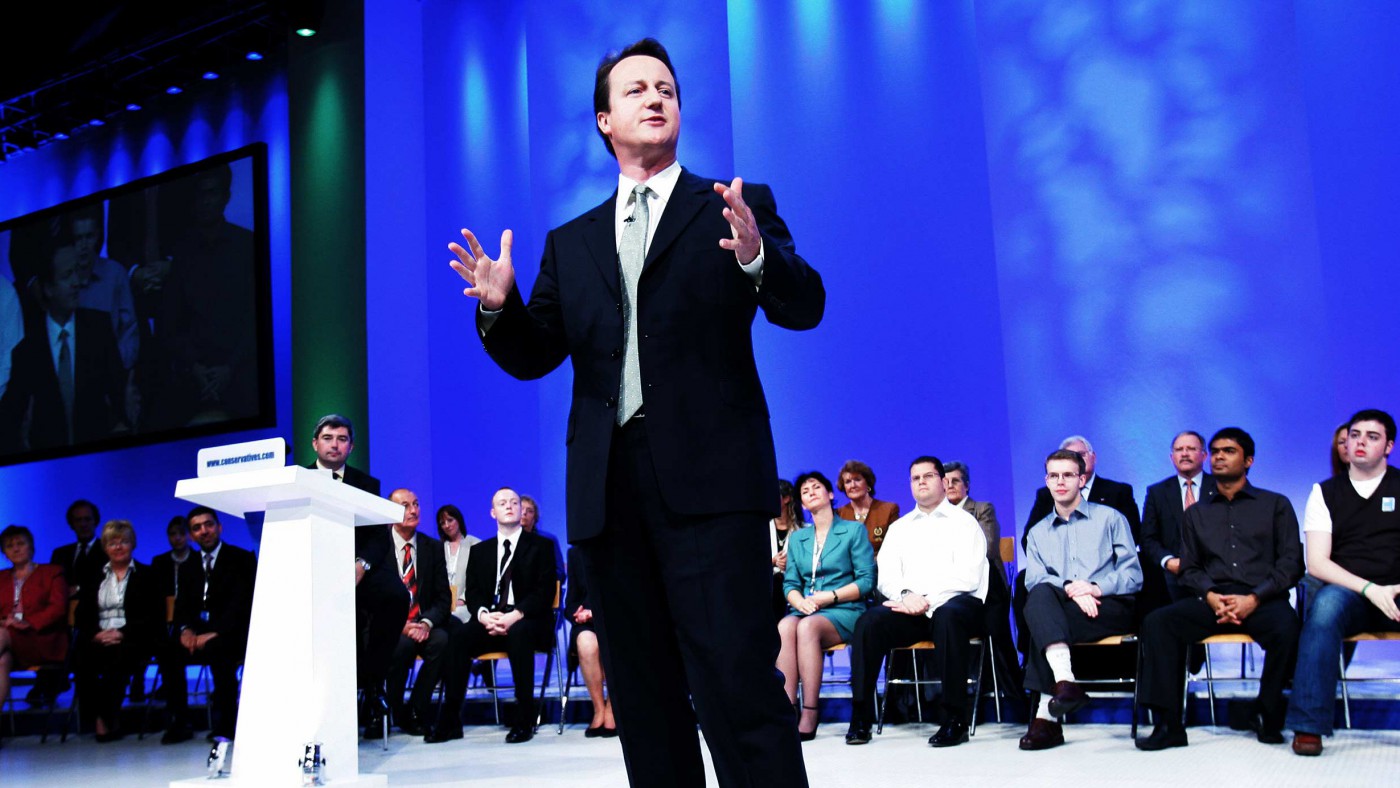The Tory triumph was a victory for Conservative modernisers, apparently. That’s the theory presented by Lord Finkelstein in his, as ever, beautifully-written column for The Times today. I can see what Lord F is getting at, and the Cameroons and Osbornites are understandably excited that their chaps have been vindicated. They will no longer have to endure the complaints of some MPs and hard to please columnists who say that Cam-Os have been in charge for almost a decade without winning. Now, at last, they are winners. And what a win.
But there is a problem with the theory that it was modernisers wot won it. In order to win, the modernisers first junked an awful lot of their modernisation programme. By half way through the last parliament the Prime Minister himself was talking about “ditching the green crap,” which represented a remarkable turn around on the part of a leader who began in 2005 by hugging huskies and campaigning against global warming. They abandoned the Big Society motif (which had been a great Burkean Tory idea marketed atrociously) and instead adopted a hard-nosed and very clear line on the economy. The Aussie bruiser Lynton Crosby, who ran the 2005 general election campaign for the Tories and masterminded both victories for Boris in London, was drafted in by Cameron when the Tory leader thought he might lose. Crosby would not tolerate the burbling of ultra-modernisers and persuaded the Tory leadership to keep it coherent. The message was moderate conservatism, yes of course. But this was a million miles away from Oliver Letwin’s manifesto of 2010, “an invitation to join the government of Great Britain,” which was the high watermark of modernisation.
Cameron is no fool and he likes to win, so he switched two thirds of the way through the last parliament. In doing so he repaired much of the damage done to familial relations in the Tory tribe earlier in his leadership. He went for moderate conservatism stripped of metropolitan modernising muppetry and was rewarded with great loyalty in the months running up to polling day. Even when Tory donors and MPs had grave concerns about the conduct of the campaign – as they did even until the moment the exit poll landed – they kept their worries pretty much to themselves out of loyalty. They griped a bit but generally backed Cameron, which modernisers, including Danny Finkelstein, would do well to remember.
Lord Finkelstein, Danny if I may, the “big mistake” at the heart of the Cameron project in its early phase was always the attempt by the modernisers to define themselves against a significant chunk of the Tory electorate. Rather than locking in the core support – by talking to people politely – the modernisers sought definition by engineering conflict and being rude about opponents they presented as dinosaurs. Parts of the Tory Right responded in kind to this abuse, and quite a few voters left for UKIP. A lot of it was so unnecessary, especially when there is an example at hand (Reagan) of what can be achieved when an optimistic leader appeals to moderate voters and his base thinks he still likes them too.
Happily, for the Tories, Cameron found a way back from ultra-modernisation. His two most recent speeches at Tory party conference were impressive texts and later in the campaign he finally found a way of talking properly about aspiration, even if the “it pumps me up” bit on the stump was rather cringeworthy. Still, in the last parliament Cameron did something remarkable, which most leaders cannot do because they turn inwards as they get older. For this he deserves great credit. In the last couple of years he learnt from his mistakes and he adjusted course.
The Tory modernisers – enjoying this moment as most non-socialists are – should remember that the Conservatives won by pulling together. Cameron conceded ground, improved his party management and hired a professional to run the election. Other than a few individuals, the Right (which is not a coherent bloc anyway) and assorted other rebels responded by letting Crosby and Cameron get on with it. The broad Tory tribe campaigned hard. The election was their victory too.


